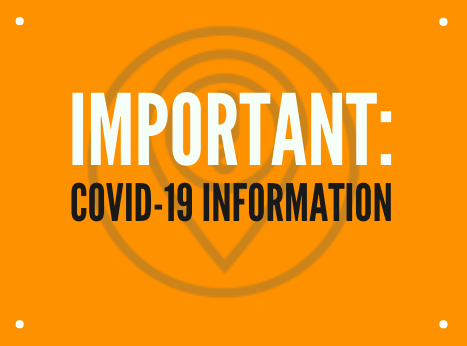March 18, 2020
COVID - 19: What every migrant worker should know

Media is talking about the Coronavirus, but what is it exactly? There are many types of coronaviruses, some that cause common colds and others that can lead to more serious airway diseases. The current outbreak is of a virus called COVID-19.
Common symptoms include: sore throat, stuffy and/or runny nose, diarrhea, and breathing difficulties. The virus is transmitted through tiny droplets from the nose or mouth that spread when a person with COVID-19 coughs or exhales.
The World Health Organization (WHO) updates its website every day to keep the public informed about COVID -19 and has recommendations people can take to avoid exposure and infection.
Wash your hands frequently with soap and water or use an alcohol-based hand sanitizer.
Avoid touching your eyes, mouth, and nose.
Cover your cough with the inside of your elbow or a tissue
Avoid crowded places
Stay home if you don't feel well, even if you just have a mild fever or cough
Stay in touch with your doctor. Call before you get medical care. Be sure to get care if you feel worse or you think it is an emergency.
Stay on top of the latest information.
Why is it important for migrant workers to carefully follow these recommendations?
Migrants workers at risk of exposure, infection and complications , because they generally face adverse travel conditions and barriers in accessing health services. Living and working conditions in a foreign country can also increase the risks.
It is very important that all migrants have the necessary information to protect themselves from COVID-19 at all times, while traveling, staying in another country or even staying in their communities of origin.
Remember!
Taking safety precautions will prevent the spread of germs and viruses.
Maintaining social distance ( staying away from other people, particularly those who cough, sneeze, and have a fever) will also help contain the spread of the virus.
It is important that you call a doctor if you have a fever, cough, and shortness of breath, this will help protect your health and that of your loved ones.
If you start to feel unwell at your workplace, tell your supervisor, manager or foreman and ask them to take you to the nearest medical service. Under no circumstances try to hide or minimize your symptoms.
Keep up to date with information from the official websites of official government health institutions.
Be careful not to read or follow instructions from fake or misleading websites that spread false information. This could cause a panic.
Some websites that you can consult are:
- The COVID-19 Prevention and Treatment page (U.S. Centers for Disease Control)
- Questions and answers about COVID-19 (World Health Organization).
